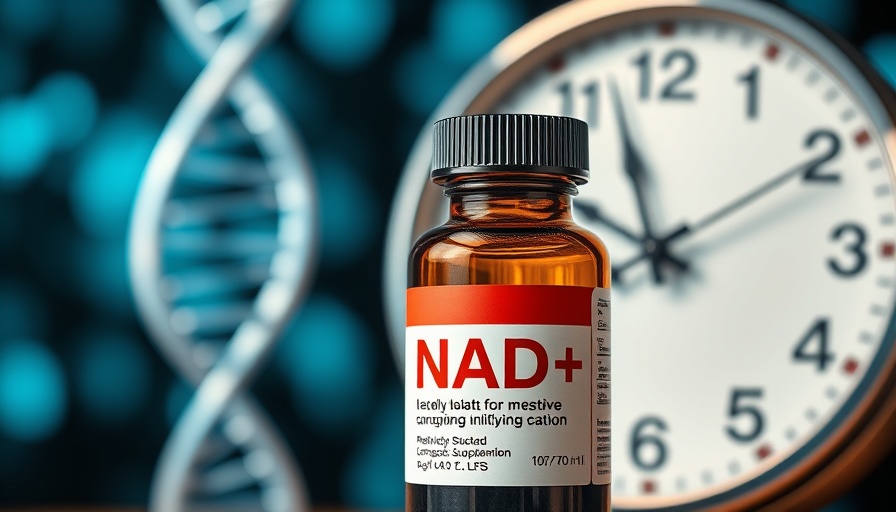
The Fascinating Role of NAD+ in Aging
NAD+ (Nicotinamide Adenine Dinucleotide) is not just a fancy acronym; it's a vital coenzyme found in every cell of our body, playing critical roles in metabolism and energy production. This molecule has gained attention for its potential in extending lifespan and boosting healthspan, particularly as research has demonstrated its remarkable effects on aged animals. Studies show that boosting NAD+ levels can have dramatic impacts on physical activity, cognitive function, and even cellular restoration, effectively turning back the biological clock in various ways.
Scientific Breakthroughs: From Mice to Human Implications
In numerous studies, aged rodents treated with NAD+ boosters displayed improvements in multiple health metrics, including increased physical activity, enhanced vision, improved bone density, and even a delay in muscle and cognitive decline. For instance, a study indicated that a single week of NAD+ supplementation could restore muscular health in older mice to levels comparable to much younger ones. Such findings have led scientists to hypothesize that similar outcomes could be observed in humans, prompting discussions around NAD+ supplements' viability.
Exploring Popular NAD+ Boosting Supplements
Currently, there are several NAD+ boosters people are experimenting with, such as nicotinic acid (NA), nicotinamide (NAM), nicotinamide riboside (NR), and nicotinamide mononucleotide (NMN). Among these, NMN and NR are often marketed for their higher potency and direct role in NAD+ production. However, existing research raises questions about their efficacy compared to more traditional forms of NAD+ precursors like NA and NAM. The body's complex pathways for converting these substances into NAD+ suggest that cheaper options may be just as effective, if not more so.
The Search for Human Translation
Despite the exciting preclinical results in animal studies, the translation of NAD+ boosters to human health benefits remains less certain. While initial human trials are underway, they often focus on short-term impacts rather than the long-term benefits associated with sustained supplementation. As health enthusiasts and average consumers alike flock to NAD+ supplements, it’s crucial to approach them with an understanding of the science—and limitations—behind them.
Critical Perspectives and Future Implications
Critics argue that while initial results are promising, more extensive longitudinal studies are necessary to understand the full scale of potential benefits and risks. What's more, taking NAD+ boosters may not substitute for a healthy lifestyle. An effective and sustainable health span is likely still anchored in a balanced diet, regular exercise, and mental well-being.
Empowering Informed Choices
Understanding what NAD+ boosters are capable of is not merely about living longer—it’s about living better. As interest in longevity supplements grows, it’s important to remain grounded in facts and evidence-based research. Before starting any new supplementation regimen, individuals should consider consulting healthcare professionals to tailor the approach accordingly.
In a world so focused on quick fixes, the pursuit of healthspan and lifespan should be viewed through a multifaceted lens embracing diet, exercise, mental health, and informed supplementation choices.
If you're intrigued by the therapeutic potential of NAD+ boosters and wish to empower yourself further, consider researching the existing literature or discussing with a healthcare provider about your options.
 Add Row
Add Row  Add
Add 




 Add Row
Add Row  Add
Add 

Write A Comment